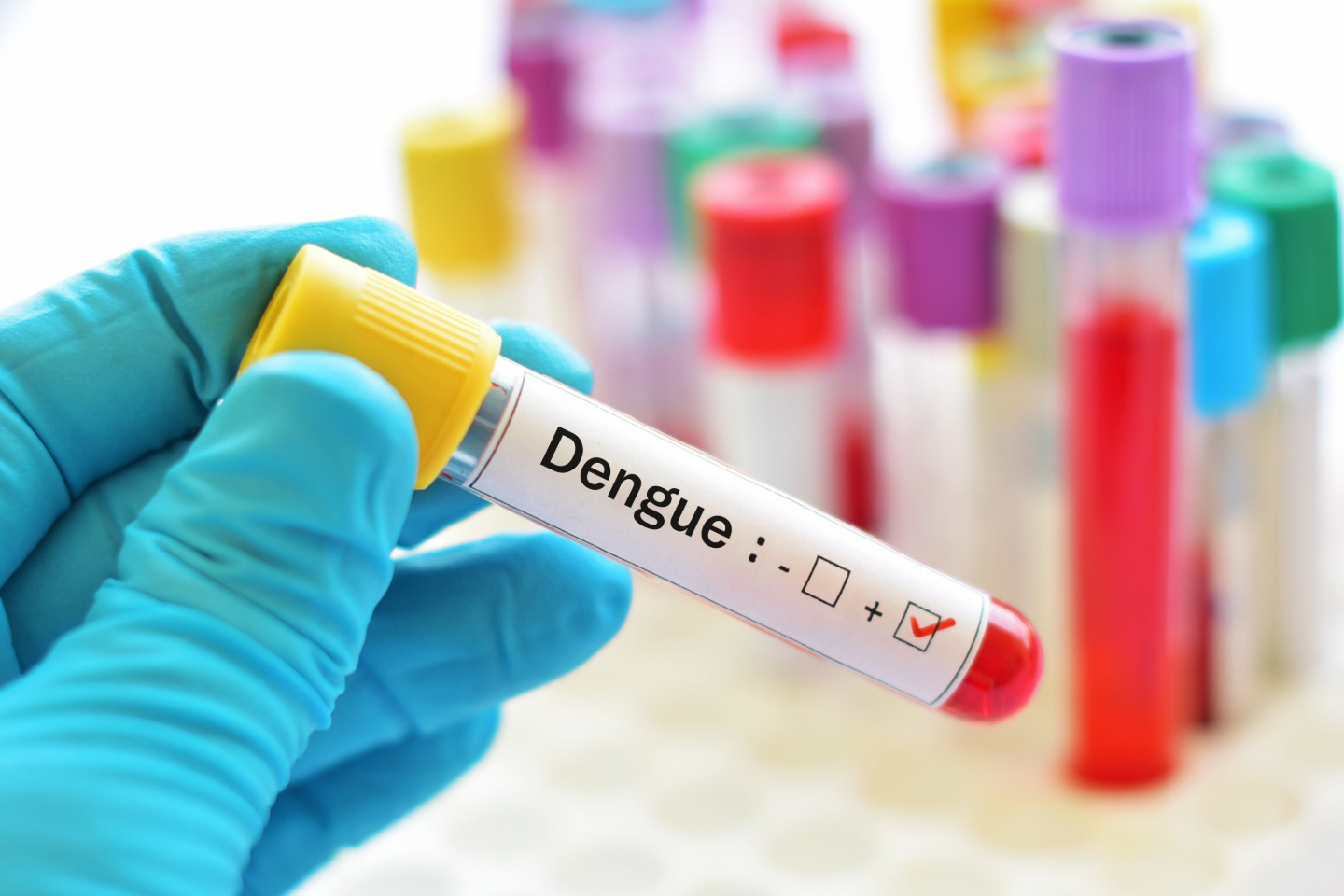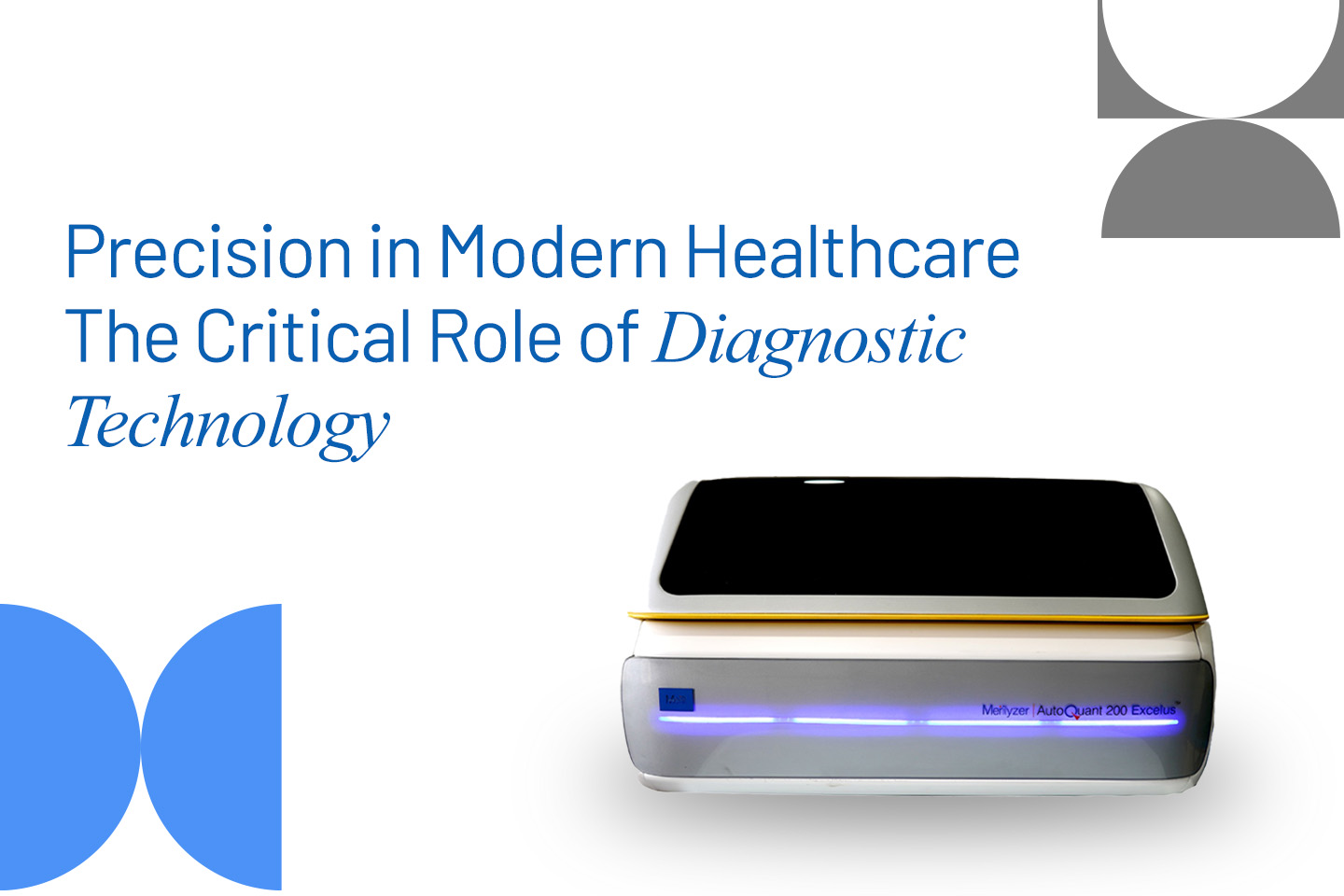Medical Devices
Dengue Fever: Causes, Symptoms and Treatment

Dengue fever, a common yet often misunderstood viral infection, can cause significant health issues if not properly managed. With the rainy season upon us, it's crucial to arm ourselves with the knowledge to recognise and prevent this potentially dangerous disease. In this article, you will get to learn about the causes, symptoms, and treatment options for dengue fever, as well as essential preventive measures to keep you and your loved ones safe.
What is Dengue Fever?[1]
Dengue fever is caused by the dengue virus (DENV), which has four distinct serotypes: DENV-1, DENV-2, DENV-3, and DENV-4. When a person is infected with one serotype, they gain lifelong immunity to that specific serotype but only short-term immunity to the others. This means it is possible to contract dengue multiple times, with subsequent infections potentially being more severe.
Dengue fever can range from mild to severe. While many individuals experience mild symptoms, severe cases can lead to serious complications such as dengue hemorrhagic fever (DHF) and dengue shock syndrome (DSS), which can be life-threatening. Early recognition and proper medical care are crucial for managing the disease effectively.
Causes of Dengue Fever[1]
Dengue fever is primarily transmitted through the bite of an infected Aedes mosquito, with Aedes aegypti being the primary vector. These mosquitoes thrive in urban environments and are most active during early morning and late afternoon.
The breeding habits of Aedes mosquitoes contribute significantly to the spread of dengue. They lay eggs in standing water found in containers like flower pots, discarded tires, and buckets. As such, areas with stagnant water around living spaces are at a higher risk. Additionally, living in or travelling to regions where dengue is endemic increases the likelihood of contracting the disease. The lack of effective mosquito control measures further exacerbates the risk.
Symptoms of Dengue Fever[1]
The incubation period for the dengue virus ranges from 4 to 10 days after being bitten by an infected mosquito. Common symptoms include:
- High fever (up to 104°F or 40°C)
- Severe headache
- Pain behind the eyes
- Joint and muscle pain
- Nausea and vomiting
- Skin rash appearing 2-5 days after the onset of fever
- Mild bleeding (e.g., nosebleeds, gum bleeding, easy bruising)
In severe cases, dengue can progress to dengue hemorrhagic fever (DHF) or dengue shock syndrome (DSS), characterised by:
- Severe abdominal pain
- Persistent vomiting
- Rapid breathing
- Bleeding gums
- Fatigue and restlessness
- Blood in vomit or stool
Diagnosis of Dengue[2]
If dengue fever is suspected, it is always recommended to seek medical attention promptly. Diagnosis typically involves a combination of methods:
- Physical Examination and Medical History Review: A healthcare provider will assess symptoms and potential exposure to mosquito bites.
- Blood Tests[3]: These include rapid test kits such as the NS1 antigen test and IgM and IgG antibody tests to detect the presence of the dengue virus or the body's response to it.
- Complete Blood Count (CBC): This test monitors platelet levels and white blood cell count, as dengue can cause a drop in platelets, leading to increased bleeding risk.
Treatment of Dengue Fever[1]
There is no specific antiviral treatment for dengue fever. Management focuses on supportive care and alleviating symptoms:
- Hydration: Drinking plenty of fluids is crucial to prevent dehydration, especially during the fever phase.
- Pain Relief: Medication is usually recommended for fever and pain relief.
- Rest: Patients are advised to rest as much as possible to aid recovery.
- Monitoring: It is important to watch for signs of severe dengue and seek immediate medical care if symptoms worsen.
Preventive Measures[4]
Preventing dengue fever involves protecting oneself from mosquito bites and reducing mosquito populations:
- Insect Repellent: Use insect repellent on exposed skin to deter mosquito bites.
- Protective Clothing: Wear long-sleeved shirts and long pants, especially during peak mosquito activity times.
- Mosquito Nets and Screens: Use mosquito nets while sleeping and ensure windows and doors are screened to keep mosquitoes out.
- Eliminate Breeding Sites: Regularly empty containers that collect water, cover water storage containers, and dispose of trash properly to reduce potential mosquito breeding grounds.
When to Seek Immediate Medical Attention
Immediate medical care should be sought if symptoms of severe dengue appear. Warning signs include:
- Severe abdominal pain
- Persistent vomiting
- Bleeding (gums, nose, blood in vomit or stool)
- Difficulty breathing
- Fatigue and restlessness
Prompt medical attention can be life-saving and is crucial for managing severe cases of dengue effectively.
Meriscreen Dengue Onset by Meril
Meriscreen Dengue Onset is a rapid immunochromatographic test designed for the qualitative detection of dengue NS1 antigen and antibodies (IgG and IgM). It effectively detects all four dengue virus serotypes, providing results in just 20 minutes. This quick and reliable test helps in early diagnosis and differentiates between primary and secondary infections, making it an essential tool in managing dengue.
Meriscreen Dengue NS1 Ag by Meril
Meriscreen Dengue NS1 Ag is a rapid immunochromatographic test. It is used for the qualitative detection of Dengue NS1 antigen in human serum or plasma. The test provides results within 20 minutes and it is easy to use and requires no sample preparation.
Merilisa Dengue NS1 Ag by Meril
Merilisa Dengue NS1 Ag is a solid-phase enzyme-linked immunosorbent assay (ELISA) for detecting Dengue NS1 antigen in human serum or plasma. The test identifies all four dengue virus serotypes. This one-step sandwich ELISA uses highly purified monoclonal antibodies, making it user-friendly and reliable for early dengue detection.
MeriScreen Dengue IgG/IgM Ab by Meril
MeriScreen Dengue IgG/IgM Ab is a rapid immunochromatographic assay designed for detecting dengue antibodies in human serum or plasma. This test uses recombinant antigens to identify antibodies across all four dengue virus serotypes. Requiring only 5 microliters of sample, the assay delivers results in 20 minutes with over 95% sensitivity and specificity. It differentiates between primary and secondary dengue infections, making it a reliable and efficient tool for early dengue detection.
Conclusion
Dengue fever is a serious illness that requires awareness and proactive measures for prevention and management. By understanding the causes, recognising the symptoms, and knowing how to seek appropriate medical care, individuals can protect themselves and their communities from the impact of dengue. Remember, taking steps to prevent mosquito bites and eliminating breeding sites is key to reducing the spread of dengue fever. Stay informed, stay safe, and spread awareness about dengue fever to help combat this pervasive health threat.
Reference Links:
[1] https://my.clevelandclinic.org/health/diseases/17753-dengue-fever
[2] https://medlineplus.gov/lab-tests/dengue-fever-test/
[3] https://www.merillife.com/blog/medtech/dengue-resurgence-what-patients-should-know-about-dengue-testing-and-test-kits
[4] https://www.who.int/news-room/fact-sheets/detail/dengue-and-severe-dengue#:~:text=Dengue%20(break%2Dbone%20fever),aches%2C%20nausea%2C%20and%20rash.
https://www.mayoclinic.org/diseases-conditions/dengue-fever/diagnosis-treatment/drc-20353084
https://www.cdc.gov/dengue/about/index.html
https://www.hopkinsmedicine.org/health/conditions-and-diseases/dengue-fever
https://www.webmd.com/a-to-z-guides/dengue-fever-reference





